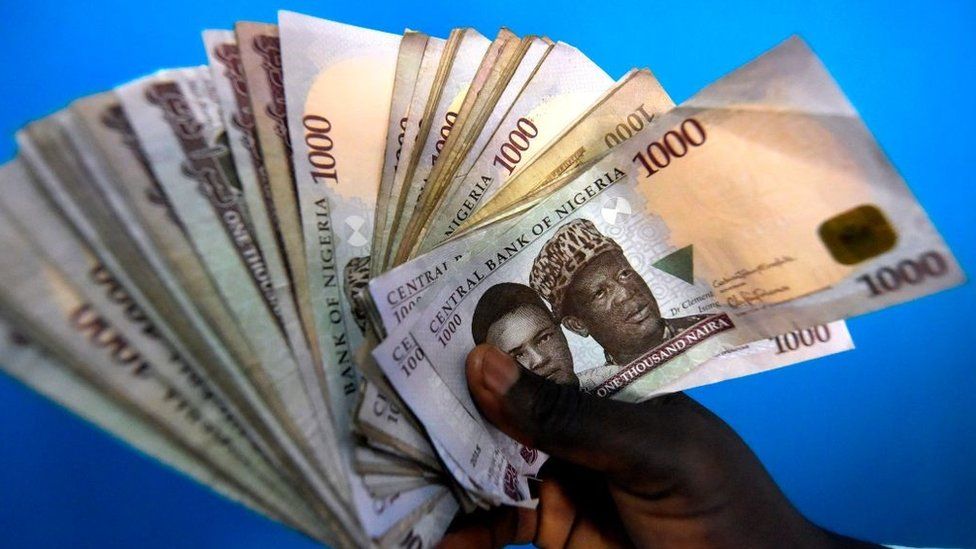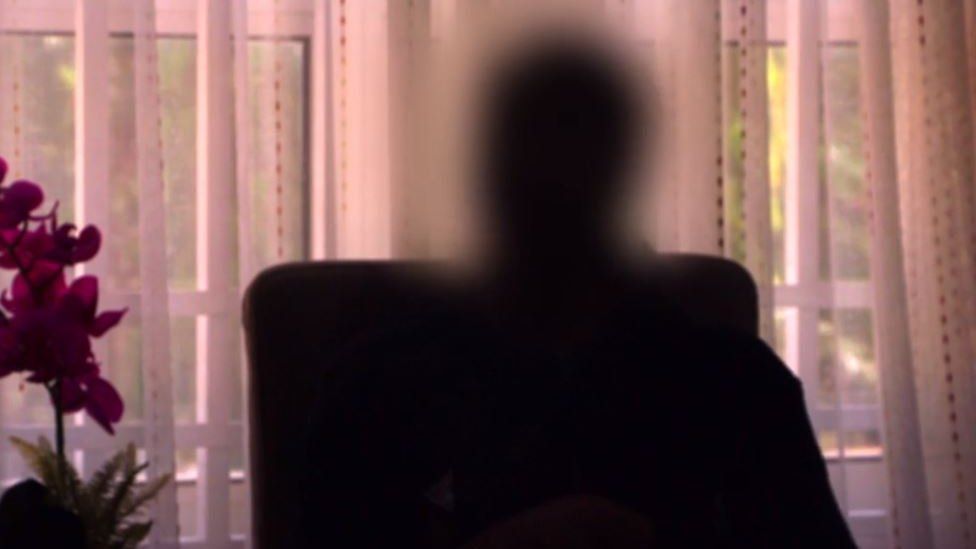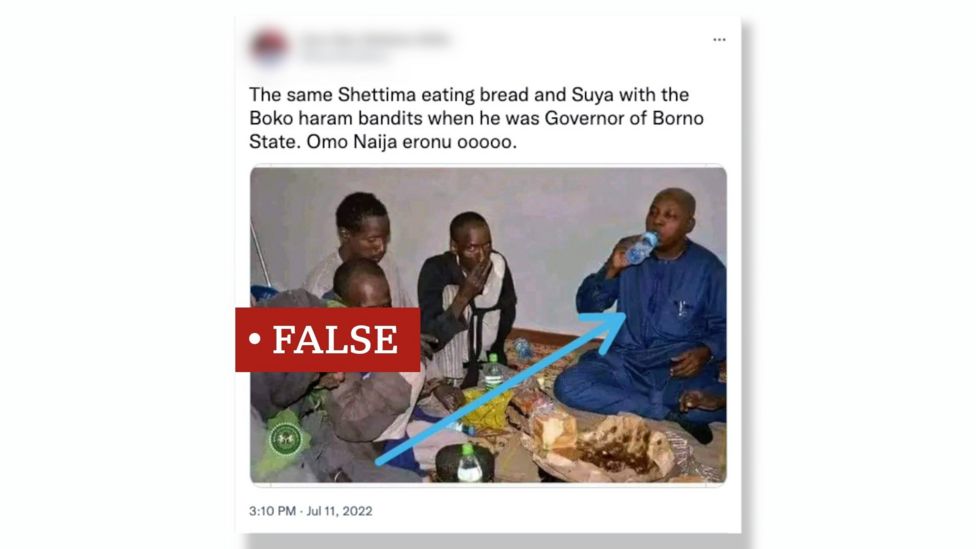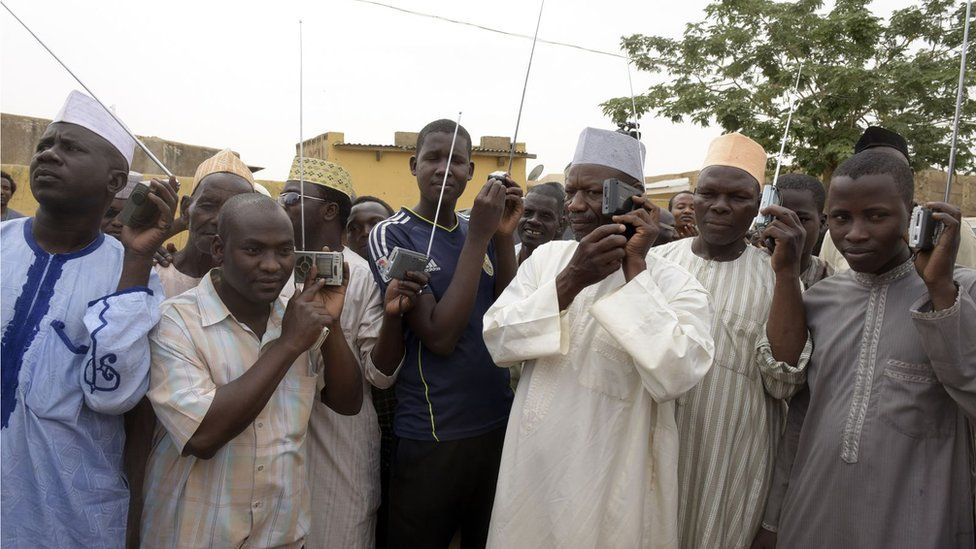| BBC Documentary: Nigerian Influencers Paid To Manipulate Your Vote by Mikalaika: 2:01pm On Jan 18, 2023 |
|
| Re: BBC Documentary: Nigerian Influencers Paid To Manipulate Your Vote by Mikalaika: 2:21pm On Jan 18, 2023 |
RENO OMOKRI’S name was specifically mentioned as one of such influencers that peddle fake news. 
|
| Re: BBC Documentary: Nigerian Influencers Paid To Manipulate Your Vote by Olowoeko11: 2:29pm On Jan 18, 2023 |
Tunde Ednut made it obvious |
| Re: BBC Documentary: Nigerian Influencers Paid To Manipulate Your Vote by Talawaka: 9:12am On Jan 20, 2023 |
PsyOps the Nigerian way. In this country, politics is essentially a zero-sum game where anything goes,. By the way, I believe Reno Omokri learned some of his own skills during his time as an intern on the Al Gore Campaign  Psychological warfare (PSYWAR), or the basic aspects of modern psychological operations (PsyOp), have been known by many other names or terms, including Military Information Support Operations (MISO), Psy Ops, political warfare, "Hearts and Minds", and propaganda.[1] The term is used "to denote any action which is practiced mainly by psychological methods with the aim of evoking a planned psychological reaction in other people".[2]
Various techniques are used, and are aimed at influencing a target audience's value system, belief system, emotions, motives, reasoning, or behavior. It is used to induce confessions or reinforce attitudes and behaviors favorable to the originator's objectives, and are sometimes combined with black operations or false flag tactics. It is also used to destroy the morale of enemies through tactics that aim to depress troops' psychological states. Source: https://en.wikipedia.org/wiki/Psychological_warfare |
| Re: BBC Documentary: Nigerian Influencers Paid To Manipulate Your Vote by Talawaka: 9:18am On Jan 20, 2023 |
Nigeria elections 2023: How influencers are secretly paid by political parties

By Chiagozie Nwonwu, Fauziyya Tukur, and Yemisi Oyedepo
BBC Global Disinformation Team
A BBC investigation has discovered that political parties in Nigeria are secretly paying social media influencers to spread disinformation about their opponents ahead of general elections in February.
The BBC's Global Disinformation Team has spoken to whistle-blowers working for two of Nigeria's political parties, and prominent influencers who have described it as "an industry".
The whistle-blowers say parties give out cash, lavish gifts, government contracts and even political appointments for their work.
We changed their names to protect their identity. "Yemi" is a prominent strategist and "Godiya" a politician.
"We've paid an influencer up to 20m naira ($45,000; £37,000) for delivering a result. We've also given people gifts. Other people prefer to hear: 'What do you want to do in government, be a board member, be a special assistant?'," says Godiya.

"Godiya", a politician from one of Nigeria's parties, says influencers have been paid up to $45,000 for delivering a result
Situation rooms are commonplace in the run-up to an election. It's where political parties strategise, develop plans and monitor their campaigns' success. But in the rooms the whistle-blowers described to us, there was another function: following how false narratives assigned to influencers were performing.
Strategist Yemi says fake stories are developed to improve their candidates' chances: "You can deliberately misinform in a suitable way for you."
The BBC has spoken to multiple influencers who have confirmed that payment in exchange for false political posts is widespread.
One influencer who asked not to be named - with almost 150,000 Facebook followers - told us he is paid by political parties to post completely false stories about political opponents. He says he does not do it openly but rather plants false stories through other micro-influencers he hires.
Separately, Rabi'u Biyora is a major influencer known for supporting the governing All Progressives Congress (APC) party.
He told us he was "wooed" by an opposition party to stop promoting the APC's candidate, and give his support to their candidate instead.
Posts on his Facebook timeline confirm he did just that. He told us he did not receive gifts of any kind to do so. But we discovered a Facebook post from 2019 in which he said he received a car and money from a party in exchange for his support on social media.
We put this finding to him, but he stopped responding to us.
Tactics
With an estimated 80 million Nigerians online, social media plays a huge role in national debates about politics. Our investigation uncovered different tactics used to reach more people on Twitter. Many play on divisive issues such as religious, ethnic and regional differences.
In July, influencers widely shared posts associating Kashim Shettima, the APC's candidate for vice-president, with members of the Islamist militant group Boko Haram.
This false narrative gained momentum on Twitter and was shared thousands of times, spilling onto WhatsApp and other platforms.
Using reverse image search, we found that those in the picture with Mr Shettima were nomadic Fulani parents whose children he had enrolled in secular schools in 2017, not members of Boko Haram.

A reverse image search revealed that the men were nomadic Fulani whose children Mr Shettima had enrolled in western schools in 2017 and not Boko Haram members
A month later, influencers promoted a claim without evidence that Labour Party presidential candidate Peter Obi was linked to, and following orders from, the Indigenous People of Biafra (Ipob) - a separatist movement designated in Nigeria as a terror group. His party denies this.
Those who shared this information included Reno Omokri - special assistant to former opposition President Goodluck Jonathan - who has more than two million followers on Twitter.
When approached for a comment, Reno Omokri said he stands by his accusations, but insists he has not been paid by the main opposition People's Democratic Party (PDP) to campaign on their behalf.
Meanwhile, false claims that the PDP presidential candidate, Atiku Abubakar, fell ill and was rushed out of the country have been shared several times on Twitter.
Godiya, the politician we interviewed, says political parties tell influencers to elicit as much emotion as they can with their paid posts.
"We use images that may not even be relevant to the story we are trying to spin. We can take pictures from East Africa in the 1990s in warzones and attach them to a tweet about how my ethnic group is being killed. When people get emotional they retweet, they like, and it gets traction," she says.
According to the whistle-blowers, the hired influencers are sometimes given an idea that they should frame in their own words. At other times, they are given the actual tweets that need to be published at specific times.
They say influencers are paid based on the number of followers they have. They also say payment happens mostly in cash to avoid a paper trail.
Moral compass
It is not illegal for political parties to hire social media influencers in Nigeria, but spreading disinformation on social media is a breach of the country's laws and Twitter's policy.
The BBC has asked Nigeria's main political parties, APC, PDP, and the Labour Party, about the whistle-blowers' allegations. They did not reply to our request for comment.

False messages tend to spill offline - travelling from Twitter to news programmes, becoming real conversations on the streets of Nigeria
In response to our findings, Twitter has taken down some of the accounts we reported to them and said it had a responsibility to protect electoral conversations from interference, manipulation, and false information.
However, there are concerns about the platform's capacity to tackle misinformation in Africa after Elon Musk's takeover of the company, when its continental headquarters in Ghana was closed and nearly all its staff fired.
The BBC has reached out to Twitter again after these changes, but received no response.
Idayat Hassan, director at the Centre for Democracy and Development, says the activities of these influencers amounted to "political interference".
"It is undermining trust in democracy, undermining trust in the electoral system, and it is instigating conflict," she says.
But politician Godiya sees it a different way, and defends the tactic: "It is a game. Somebody had to win, and God help me, I will not be on the losing side." Source: https://www.bbc.com/news/world-africa-63719505 |
| Re: BBC Documentary: Nigerian Influencers Paid To Manipulate Your Vote by Talawaka: 12:19pm On Jan 23, 2023 |
2023 Elections: Nigerian company unveils App to combat fake news
“As we launch the (Run-Am) App today, we will need our citizens that to go beyond exposing those misinformation..."

Rise Networks, a Data Science and Artificial Intelligence Company, on Friday in Abuja, launched the “Run-Am” mobile app to verify fake news and combat the spread of misinformation during the electioneering period.
Toyosi Akerele-Ogunsiji, founder, Rise Networks, said the platform, which can be accessed on Google Play Store, is a tool capable of ensuring efficiency and accountability of information during the 2023 elections and beyond.
She said that the project had the support of the MacArthur Foundation and the Centre for Information, Technology and Development (CITAD).
According to her, the app has the news verification feature, image verification feature and voter-education feature to check misinformation that may cause violence during elections.
“During elections, fake news is used to create a lot of voter apathy, so you see a lot of news like 50 people have been killed in a particular local government.
“And because of that, people who have their PVCs will not want to come out to vote because they are afraid.
“But when you find out, you will see that that information is not true but when voters do not turn up, that is when it will be easy for them to rig the elections.
“And those are the kind of problems the Run-Am App intend to solve,” she said.
She added that the organisation was working to ensure that the App is run in our local languages and pidgin English, for easy accessibility of all Nigerians.
Victor Aluko, Director, Voter Education and Publicity, Independent National Electoral Commission (INEC) appreciated the company for its efforts at combating fake news that may undermine the electoral processes in the country.
“We are going into a serious elections which will be contested by powerful individuals and political parties and you will see a situation where the electoral process will be pulled in various directions.
“When we have that, you will see a lot of combination of fake news, misinformation and disinformation and we are looking at how we can manage our results to make sure that people don’t misinform Nigerians.
“So when we have this type of App (Run-Am), from reputable organisations like this, we tend to identify with them and express our happiness that this is coming from a Nigerian organisation,” he said.
For his part, Dayo Olaide, Deputy Country Director, MacArthur Foundation Africa Office, added that democracy had continued to be faced with global threats across the globe.
He added that to save the country’s democracy, Nigerians must begin to pay more attention to electoral accountability and call out those who make inflammatory statements and spread fake news.
“As we launch the (Run-Am) App today, we will need our citizens that to go beyond exposing those misinformation but begin to demand that those who are driving this type of attack against our democracy are brought to book.
“That responsibility is not only that of INEC, it is a shared responsibility, the government, citizens and also the media must hold all actors accountable for their actions,” he added.
(NAN) Source: https://www.premiumtimesng.com/news/more-news/577000-2023-elections-nigerian-company-unveils-app-to-combat-fake-news.html |





